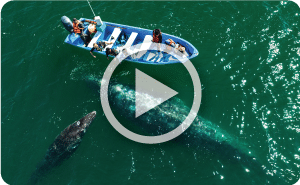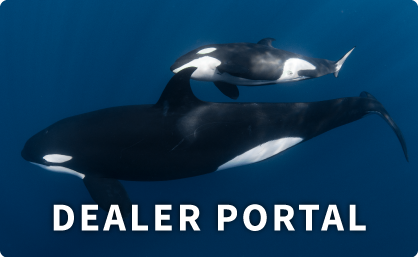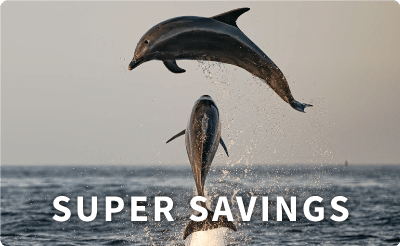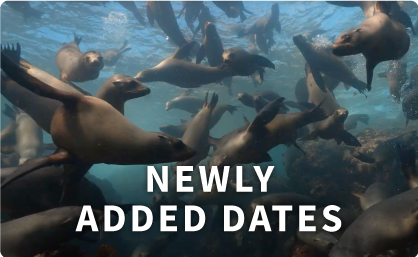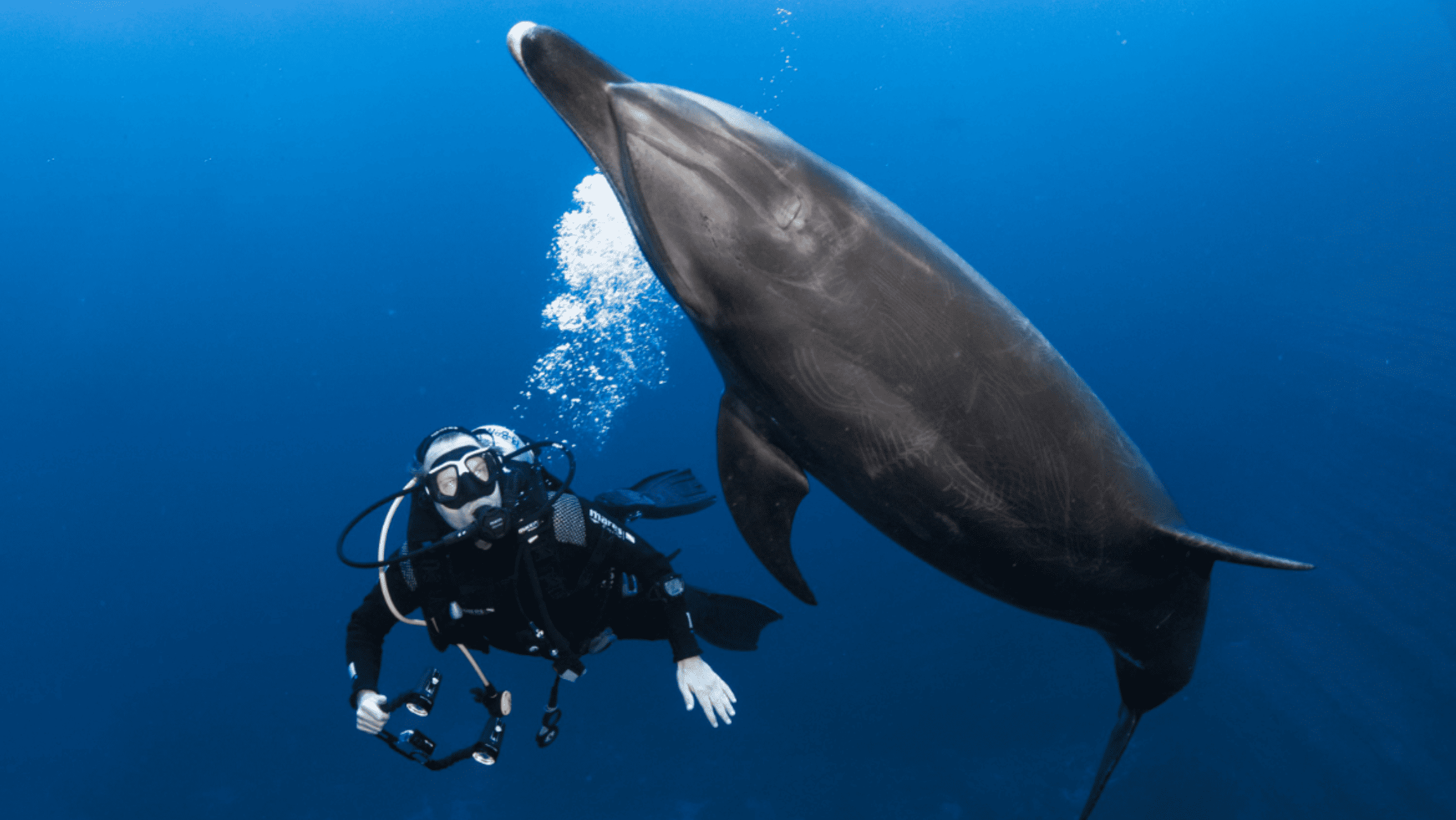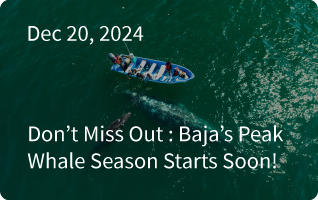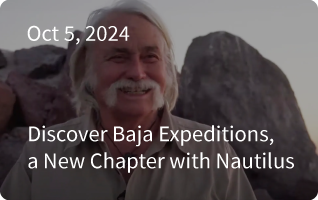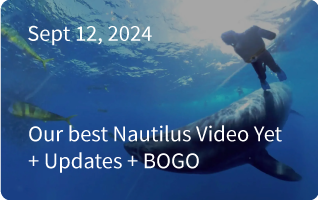Research Expedition Supports Healthy Coastlines
2017-11-11
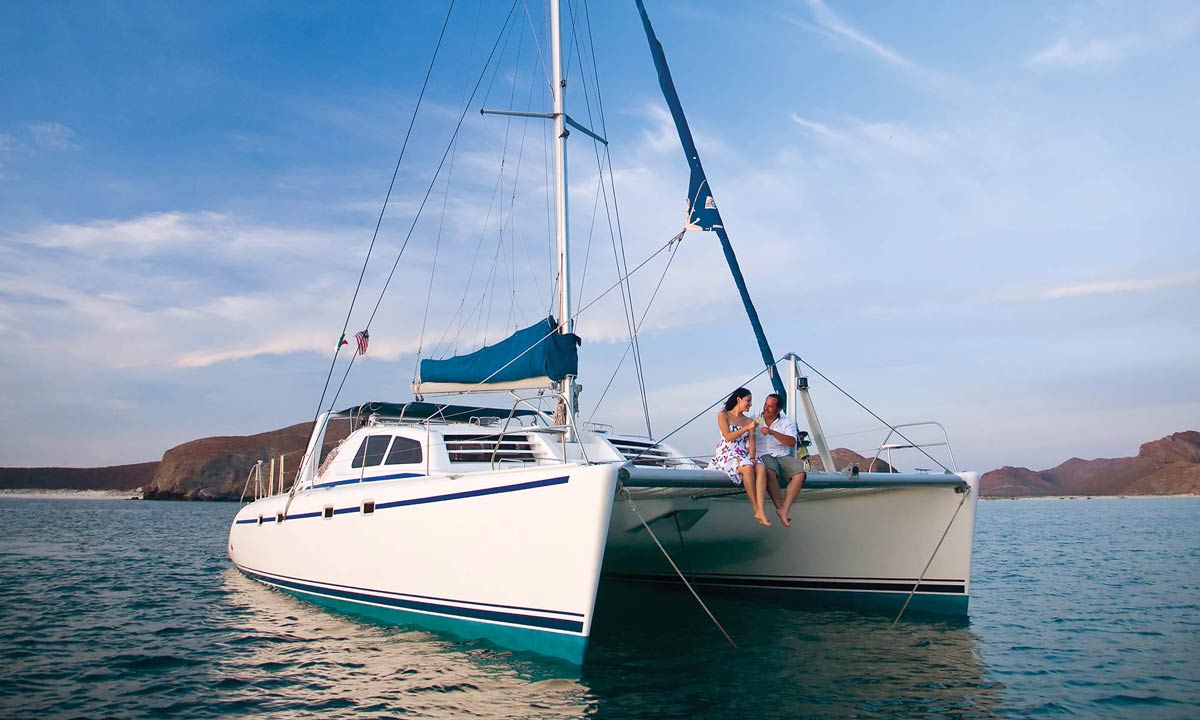
A research expedition set sail early this week aboard our Baja Expeditions’ Catamaran El Mechudo. A team of researchers from the Gulf of California Marine Program and Sociedad de Historia Natural Niparajá set off to re-visit previously established Fisheries Refuges. These scientists have been busy conducting interviews with community members and gathering data along the way. They have also been photographing mangrove estuary ecosystems all along the Mechudo Corridor, south of Loreto and north of La Paz.
Sustainable Tourism Supporting Local Conservation
Family owned and operated since 1974, Baja Expeditions offers sustainable tourism that supports local environmental education, field research, and conservation efforts. We collaborate with a variety of partners across sectors to provide access to the rich biodiversity in the deserts and seas of the Baja peninsula, its wilderness, and official Natural Protected Areas. We are proud to play a small role within a larger community advocating for sustainable management,preservation of natural resources, and healthy communities in the Gulf of California and Baja California Sur. We are so pleased to be able to support exactly this type of expedition.
Research Collective led by Octavio Aburto-Oropeza
Marine Biologist Octavio Aburto is hard at work with his GoC Marine Program team that includes Rachel Labbe-Bellas, Astrid Hsu, and Ben Meissner. Their goal this past week has been to re-visit areas with designated Fisheries Refuges in Baja, and document how the areas have responded to these Refuges, as well as how the communities are benefiting from these changes. The Gulf of California Marine Program “is dedicated to generating and disseminating scientific information that has a direct, positive impact on conservation and management issues and policies in the region.”
The Gulf Program consists of a team of scientists, students, and professionals from Scripps Institution of Oceanography at the University of California San Diego, Centro para la Biodiversidad Marina y la Conservación, and UCMEXUS-University of California Riverside. Freelance journalist Oscar Cuso Pérez of Spain joins the expedition to cover the efforts for international publication.
Concerned About the Health of Ocean Reefs
Octavio Aburto-Oropeza has co-authored a piece about Recovering Fisheries Resources in the Gulf of California together with Niparajá’s Sustainable Fisheries Program Coordinator Amy Hudson Weaver. That piece reminds us that “Ocean reefs are a source of food and income for many coastal communities that extract a great variety of fish, mainly for human consumption, like groupers, snappers or parrotfish. Because of this exploitation, many populations of these species have changed in abundance and the reefs have deteriorated. One of the main tools used to mitigate these changes has focused on protecting reefs by prohibiting fishing activities in affected areas. These areas are known by different names: Marine Protected Areas, Fish Refuges, Marine Reserves, etc. , but all of them seek to recover marine ecosystems and populations of exploited species.”
Think Globally, Act Locally
Octavio and his team are accompanied on this week’s expedition by local researchers Juan José Cota Nieto, and Ollín González. Ollín works with Amy Hudson Weaver in Niparajá’s Sustainable Fisheries Program. Niparajá’s 2016 Annual Report offered a perspective on their recent accomplishments with the Fishing Refuges Area Network:
For the fifth consecutive year, we worked with communities along the San Cosme-Punta Coyote Corridor, the Aquaculture and Fishing National Commission, the National Fishing Institute, the BCS Central Area Cooperatives Federation, researchers, and other organizations to promote the smooth running of Progress includes establishing the Fishing Management Committee, the investment of public and private resources to install remote surveillance cameras for monitoring and assessing the Refuge Areas Network.
We collaborated with a group of 51 fishers and community members that participate in conservation and sustainable fishing actions, such as: underwater monitoring, fishing catch registry, strengthening of leadership capacity, community surveillance, and participation in forums as their communities’ spokesperson. Their work allows assessing the Refuge Areas Network and promoting this instrument in different forums.
Mangroves. . . for the Fish and Birds
The Baja Expeditions’s team enjoyed an early morning outing across the channel of La Paz and into El Mogote mangrove estuaries for an early morning photo shoot. This outing aimed bring attention to the many birds and fish that call this area home–with photos worth well more than a thousand words. reports that:
Aburto-Oropeza is still using photos to communicate his scientific work, but his audience has expanded significantly. He’s a professor of marine biology at Scripps, and his photos depicting marine life have won international awards for photography and conservation and been published everywhere fromNational Geographic to the Daily Mail. His work is the subject of an exhibit at Birch Aquarium at Scripps. And now, he’s garnered one of his most prestigious prizes yet: the Explorers Club named Aburto-Oropeza as its 2017 Rolex Artist-in-Exploration.
The award is a $25,000 grant, sponsored by Rolex, to support an artist working in the spirit of the Explorers Club, a renowned professional society that has supported scientific exploration for over 100 years. Aburto-Oropeza’s grant will support four expeditions to document four different mangrove forests in the Tropical Eastern Pacific Ocean.
Mangroves are trees that grow in the transition between land and ocean in tropical and subtropical areas, and provide many critical ecosystem functions.
It Takes a Village
Baja Expeditions’s founder Tim Means helped to build the stable base for exactly the work that continues today in the form of intentional wilderness expeditions. Through almost a half-century of work in eco-tourism and land advocacy and conservation, Means’s efforts. together with those of a like-minded collective, have inspired and cultivated institutional advocacy, community engagement and organizing, and sustained alternative economic opportunity and concrete policy decrees. They have also provided inspiration for the conservation of wild places and inhabited wilderness in the Baja peninsula. Means is also one of three co-founders of Sociedad de Historia Natural Niparajá, named for the local Pericú indigenous community.
In keeping with Means’s legacy and vision, Baja Expeditions continues to offer an array of expeditions, day trips, and community activities that give back; a portion of proceeds from all of our programming helps subsidize our support of local environmental education, research, and community projects. We love sharing our work with our guests, and coming up with new ways to advocate for the health of our seas and coasts. It takes a village to conserve a peninsula.
We can’t wait to welcome the Expedition Team back to La Paz this weekend!
